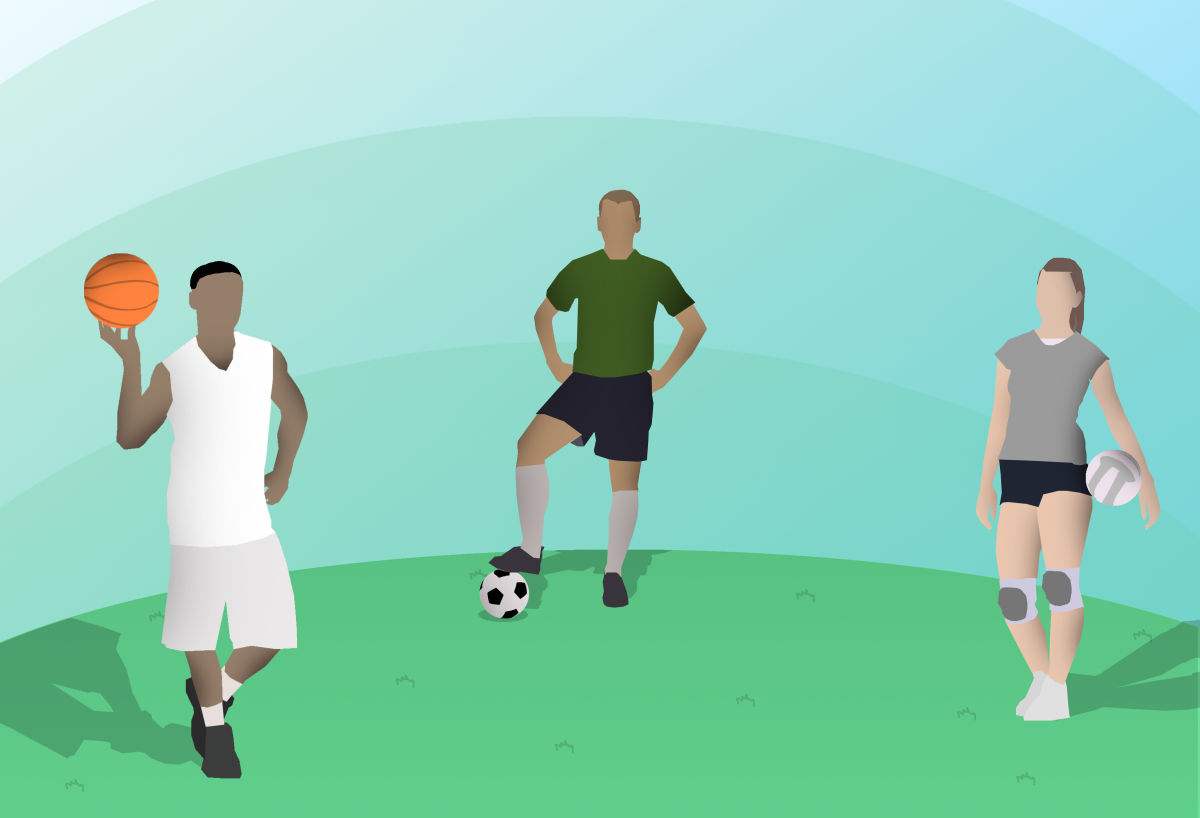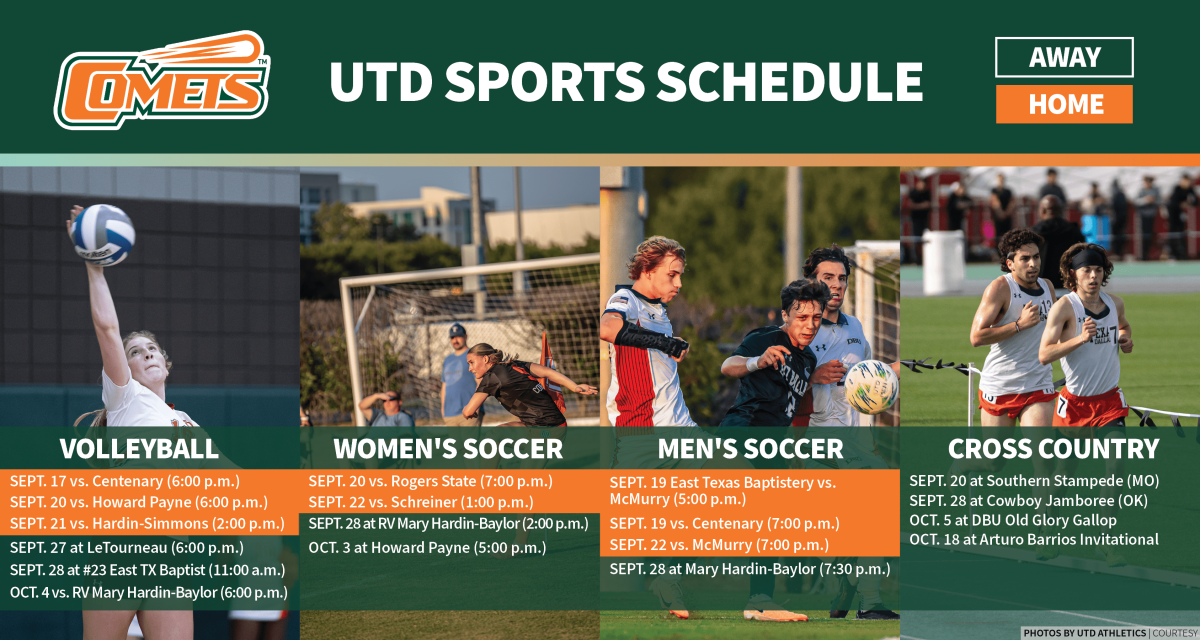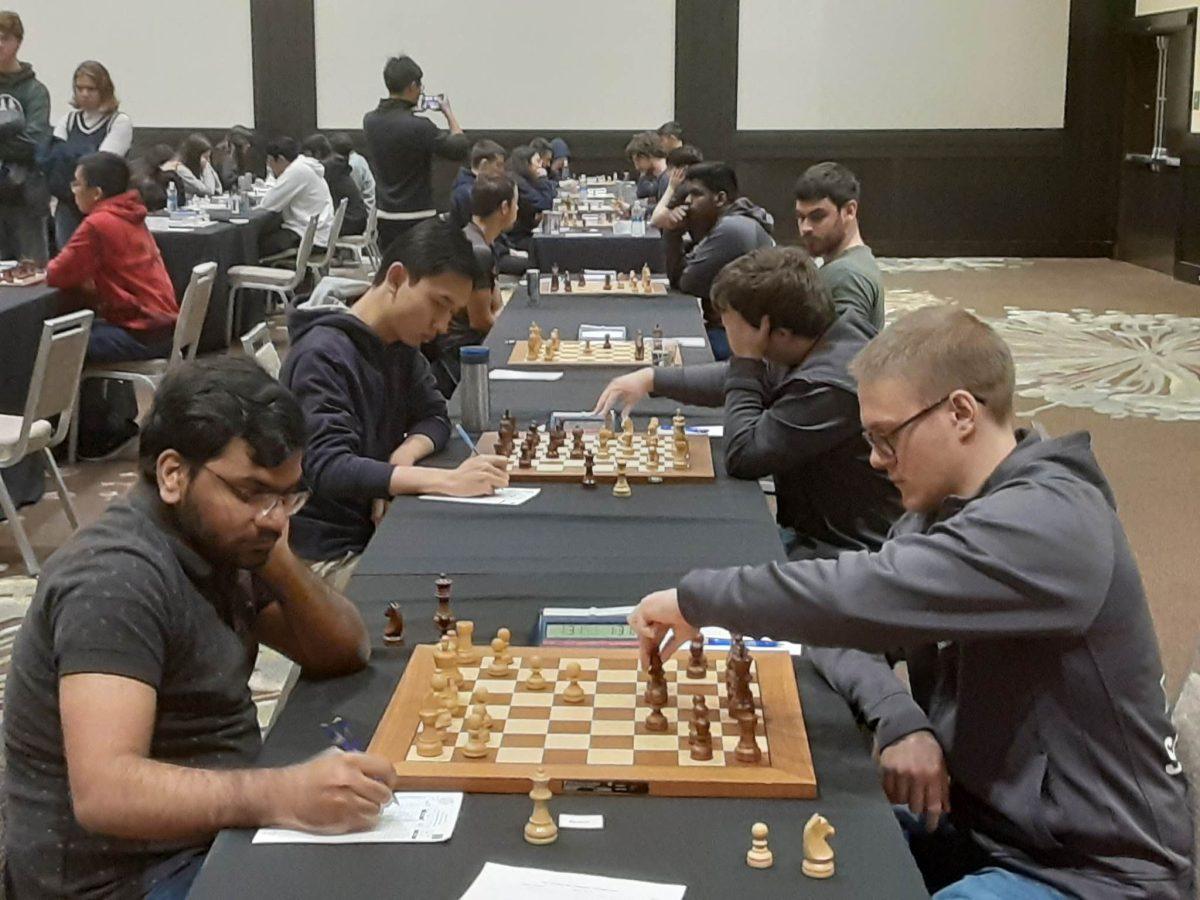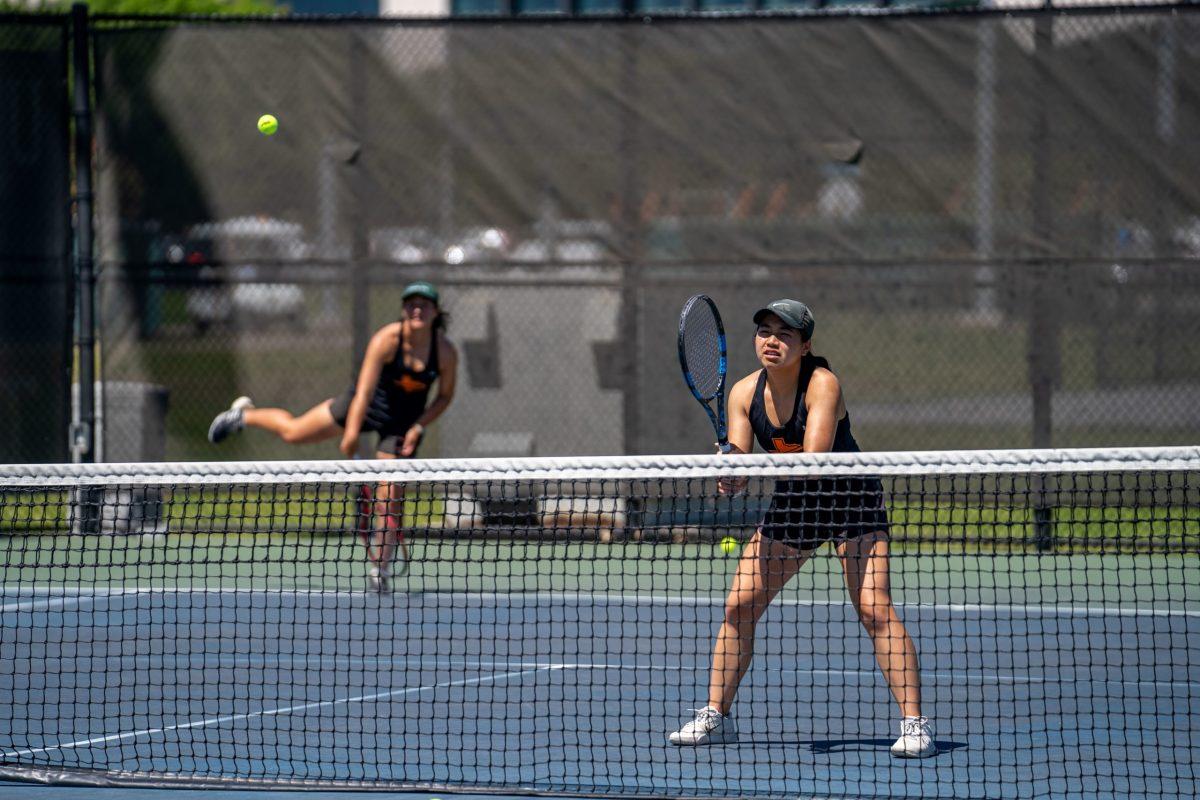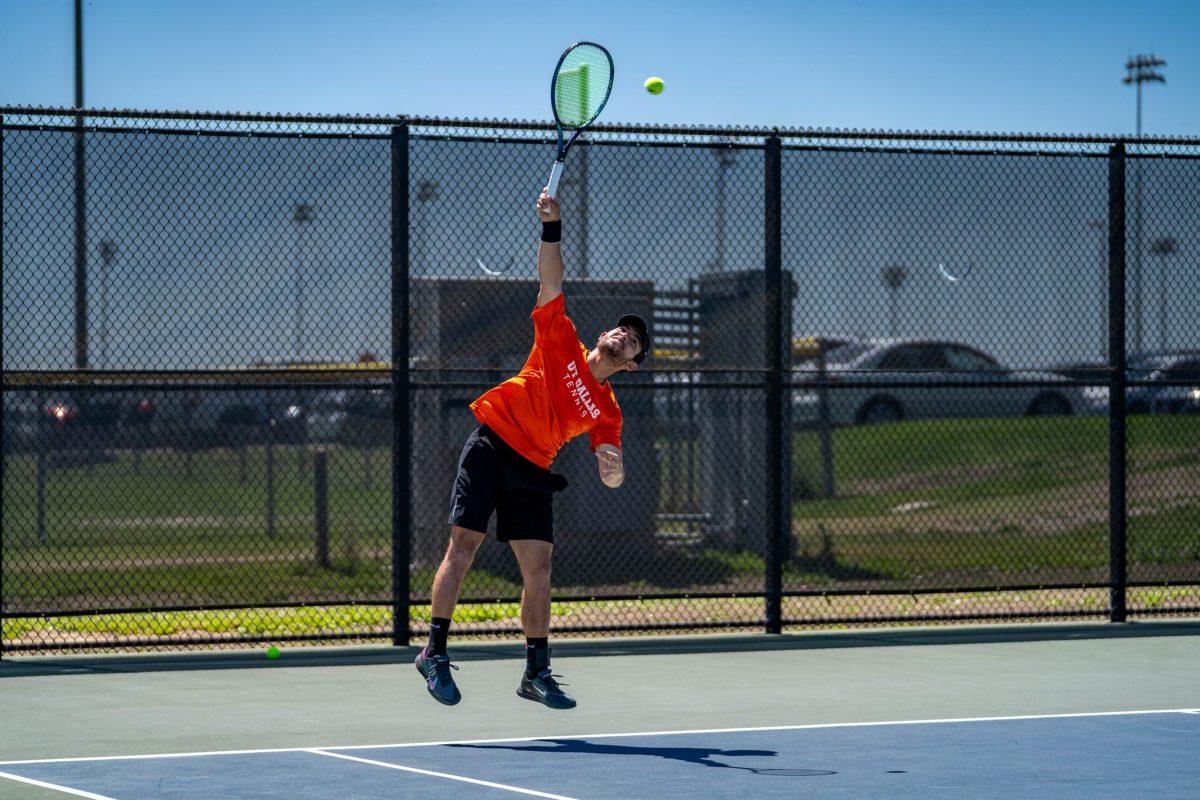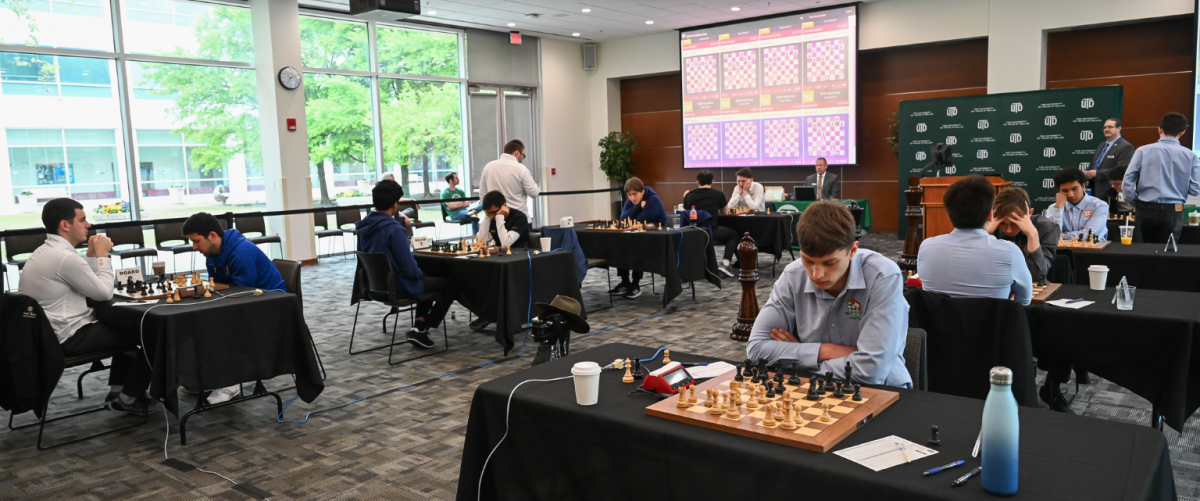Student-athletes balance academics, sports in everyday lives
The leaves wait for the beaming sunlight to shine on them. The barren roads and sidewalks patiently anticipate oncoming traffic — both by cars and by people. Before the sun rises, one early commuter, senior setter Kayla Jordan, is up and running to begin her training.
While in season, her life as a collegiate volleyball setter begins from the moment her alarm sounds at 5:30 a.m.
Rubbing the sleep out of her eyes, she heads towards the Activity Center for the team’s scheduled 7 a.m. practices.
Once practice ends at 9 a.m., Jordan begins her life as a computer science major.
“I usually try to schedule my classes right after practice so I can just stay here,” Jordan said. “Then I come home and probably take a nap because I’m tired at that point. I have to wake up and do all my homework that’s due, start studying and then do scouting for volleyball and watch videos.”
The cycle repeats itself the next day. Game days, however, are a whole different animal.
“It’s hard when we’re traveling because sometimes I can’t even go to class,” Jordan said. “So I have to tell my professors I can’t be there and work it out with them. On the bus, half of us are doing homework because we need to and the rest are just chilling. After the game, it’s back to homework and then sleeping.”
The volleyball team has study hall every Wednesday from 7 a.m. to 9 a.m. instead of regularly scheduled practice.
“All the freshman have to go, and if your GPA is lower than a 3.0, then you have to go, too,” Jordan said. “When midterms are released, if you have a C, then you have to go as well.”
For junior biomedical engineering major and cornerback for the men’s soccer team Samuel Konstanty, his days during the season begin in a similar fashion.
“It’s definitely difficult,” he said. “I wake up at 8 a.m. (and) get ready for practice. At 8:45 a.m., we have to be in the locker room. We train from 9 a.m. to 11 a.m., and what makes that difficult is that we’re tired by the time our academic day starts.”
Konstanty said he has to find the right balance between his academic and athletic requirements.
“Soccer definitely takes up about three hours each day,” he said. “That makes it difficult to study both for the time requirement and the mental and physical exhaustion. It seems like a cycle exhaustion most days.”
Freshman health care studies major and forward for the women’s soccer team Jacqueline Kaufman is up early in the morning for classes.
Kaufman is able to confide in her older teammates who have already taken some of the classes she is currently enrolled in.
“All the older girls are like, ‘If you need help with something, you can have our notes or if you have questions, come ask,’” she said. “I know we have two girls who are in some upper-level math classes and I’ve had them help me with my math homework a couple of times on the buses.”
Men’s soccer head coach Jason Hirsch emphasizes to his players the various avenues accessible to students to help them in their curriculum.
“We encourage our players to go to the student success center or talk to teaching assistants or professors if they have any questions or issues,” Hirsch said.
Hirsch said he understands the importance of academics, especially being a former student-athlete himself.
“I tell my (players) all the time that it’s about being proactive,” he said. “If you’re studying for a test last minute, then you’re approaching it the wrong way. We tell our guys all the time that there’s 24 hours in a day and we’re only asking for about 2 hours each day. The other hours of the day is the time you need to be studying, preparing for exams and quizzes. It’s challenging, but it’s about time management.”

